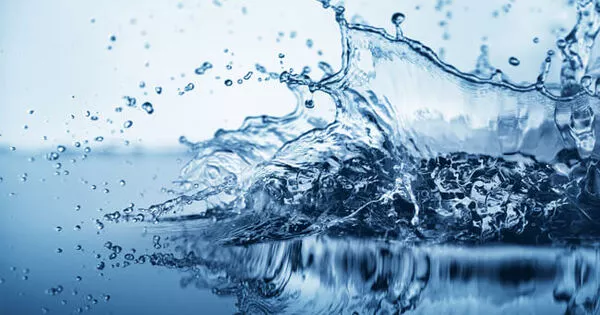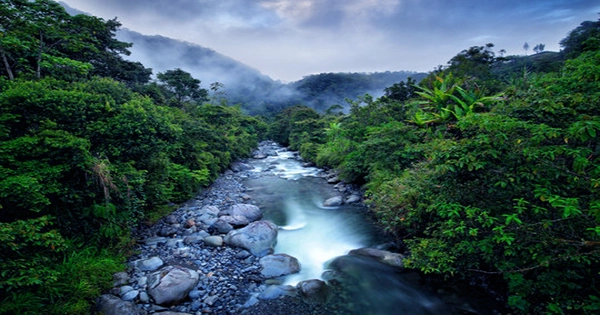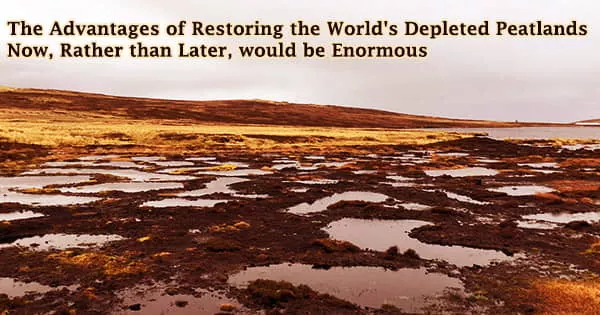The world is already 1.2°C warmer than it was before the Industrial Revolution, and every fraction of a degree counts. According to research, 2°C of global warming will result in more intense droughts and devastating floods, as well as more wildfires and storms. According to the authors of a new report, meeting climate targets is heavily reliant on better decisions to manage already scarce water resources. Uninformed policy decisions could jeopardize freshwater supplies and derail climate action.
According to new research, water is far more important in climate change mitigation than previously thought. Better water management is critical to addressing today’s food and energy crises, which are both exacerbated by climate change.
The report titled “The essential drop to reach Net-Zero: Unpacking Freshwater’s Role in Climate Change Mitigation,” released today, is the first-ever summary of current research on the role of water in climate mitigation. A key message is the need to better understand global water shortages and scarcity in order to plan climate targets that do not backfire in future. If not planned carefully, negative impacts of climate action on freshwater resources might threaten water security and even increase future adaptation and mitigation burdens.
“Most of the measures needed to reach net-zero carbon targets can have a big impact on already dwindling freshwater resources around the world,” said Dr Lan Wang Erlandsson from Stockholm Resilience Centre at Stockholm University. “With better planning, such risks can be reduced or avoided.”
We have identified water risks, but also win-win solutions that are currently not used to their full potential. One example is restoration of forests and wetlands which bring social, ecological, and climate benefits all at once.
Dr Lan Wang Erlandsson
The report explains why, where, and how freshwater should be incorporated into climate change mitigation plans in order to avoid unanticipated consequences and costly policy mistakes. Even efforts typically associated with positive climate action, such as forest restoration or bioenergy, can have negative consequences if water supplies are not taken into account.
However, if done correctly, water-related and nature-based solutions can address both the climate crisis and other challenges, according to Dr Malin Lundberg Ingemarsson of the Stockholm International Water Institute (SIWI).
“We have identified water risks, but also win-win solutions that are currently not used to their full potential. One example is restoration of forests and wetlands which bring social, ecological, and climate benefits all at once. Another example is that better wastewater treatment can reduce greenhouse gas emissions from untreated wastewater, while improving surface water and groundwater quality, and even provide renewable energy through biogas.”

The report highlights five key messages on the interlinkage between water and mitigation:
(a) Climate mitigation measures depend on freshwater resources. Climate mitigation planning and action need to account for current and future freshwater availability.
(b) Freshwater impacts – both positive and negative – need to be evaluated and included in climate mitigation planning and action.
(c) Water and sanitation management can reduce greenhouse gas emissions. More efficient drinking water and sanitation services save precious freshwater resources and reduce emissions.
(d) Nature-based solutions to mitigate climate change can deliver multiple benefits for people and the environment. Measures safeguarding freshwater resources, protecting biodiversity, and ensuring resilient livelihoods are crucial.
(e) Joint water and climate governance need to be coordinated and strengthened. Mainstreaming freshwater in all climate mitigation planning and action requires polycentric and inclusive governance.
“Climate change mitigation efforts will fail if water needs are not considered,” said Marianne Kjellén, United Nations Development Programme (UNDP). “Water must be a component of effective solutions for improving ecosystem resilience, preserving biodiversity, and establishing regenerative food and energy production systems. In short, water security must be considered in climate action” She continues.
“Water availability is critical in addressing the climate, food, nature, and energy crises. It is critical that the world focus all attention on the dual facts that water is the number one challenge for climate adaptation due to droughts and floods, and a key challenge for mitigation, as there is no safe climate future well below 2 degrees Celsius without a functioning hydrological cycle “Professor Johan Rockström of the Potsdam Institute for Climate Impact Research concludes.
















